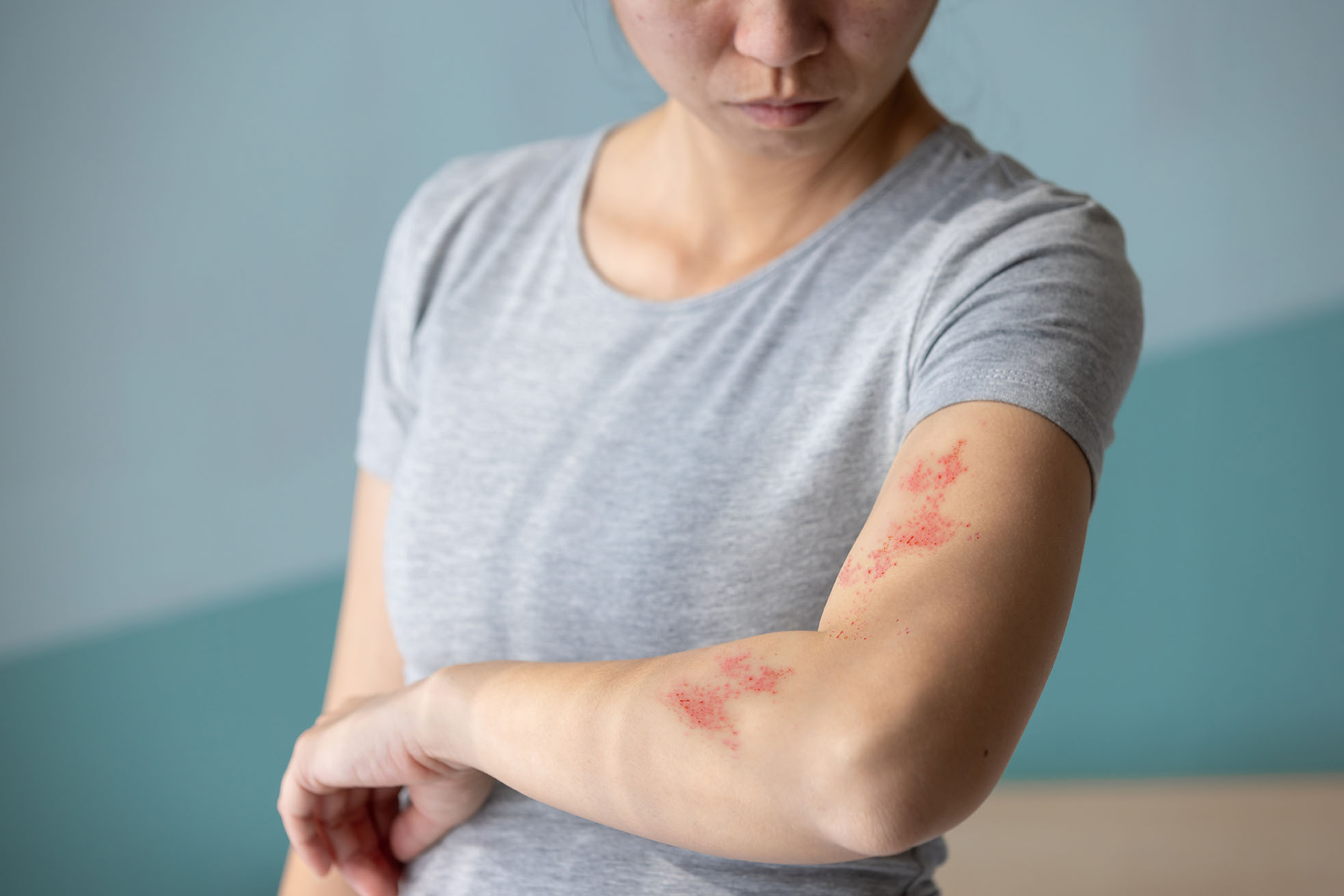
Shingles is a painful skin rash which typically looks like a single stripe of blisters that usually develops on one side of the face or body.
Cause
Shingles is caused by the herpes zoster virus, the same virus that causes chickenpox. Anyone who had chickenpox in the past can get shingles because the virus remains in the body after a person recovers from it. The herpes zoster virus can reactivate many years later, causing shingles.
Symptoms
The most common complication of shingles is post-herpetic neuralgia, which causes intermittent or continuous nerve pain in an area of your skin previously affected by shingles. The pain can be described as burning, stabbing, shooting, aching, throbbing or like electric shocks.
Around one in five people with shingles will get post-herpetic neuralgia. People aged 50 and over are particularly at risk. Many people with post-herpetic neuralgia make a full recovery within a year. But, symptoms occasionally last for several years or may be permanent.
Common symptoms of shingles include:
Who are at risk?
Shingles is more common in:
When to see a doctor
See a doctor as soon as possible if you suspect shingles, especially in the following situations:
How to prevent it?
Getting vaccinated is the best way to prevent shingles. The primary vaccination schedule consists of two doses of 0.5 ml each; an initial dose followed by a second dose 2 to 6 months later. Talk to your doctor or ask your Watsons Pharmacist for more information about the vaccine against shingles.
The shingles vaccine is available at Watsons for only P8300. Simply present your prescription to purchase yours. Click on this LINK for the list of participating Watsons stores.
References: https://www.cdc.gov/vaccinesafety/vaccines/shingles-herpes-vaccine.html#:~:text=Shingles%2C%20or%20herpes%20zoster%2C%20is,a%20person%20recovers%20from%20chickenpox. Accessed 20 September 2023 https://www.mayoclinic.org/diseases-conditions/shingles/symptoms-causes/syc-20353054. Accessed 20 September 2023 https://www.nhs.uk/conditions/post-herpetic-neuralgia/. Accessed 20 September 2023
Cerebrovascular diseases, which include stroke or brain attack, are the third leading cause of death in the country in 2022 […]
Blood pressure (BP) is the pressure exerted by the blood as it pushes against the walls of our arteries, which […]
Overweight and obesity are defined as abnormal or excessive fat accumulation that presents a risk to health. A body mass […]